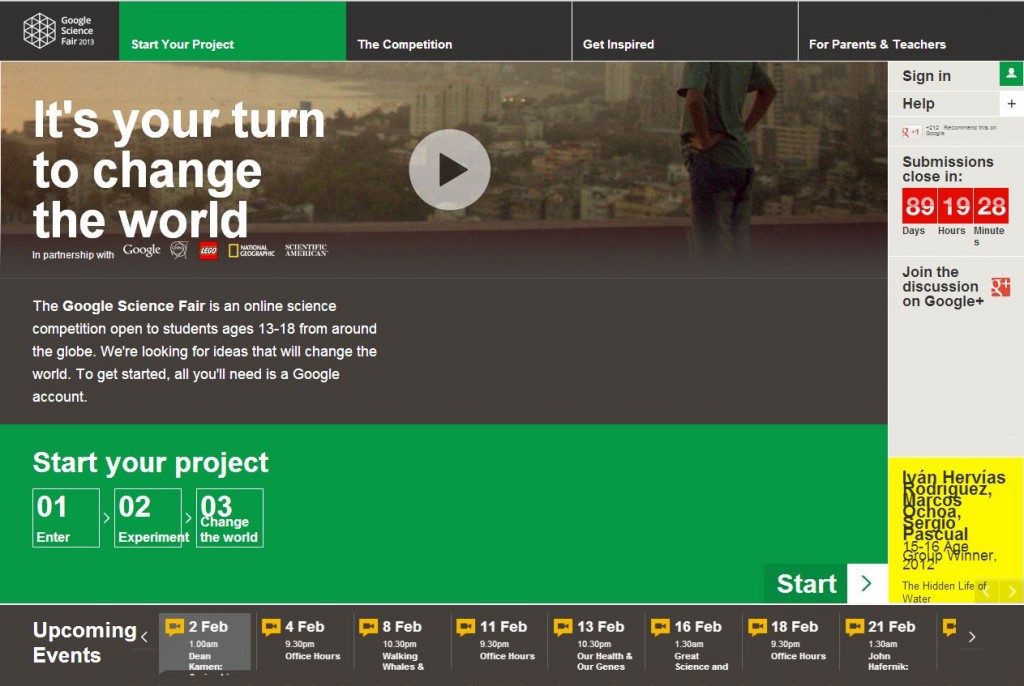Google searching for next generation Scientists and Engineers : Google Science Fair
Students at the age of 13-18 has proved to realize their dreams and make groundbreaking discoveries that changed the way we live. Examples of such students are : Louis Braille invented alphabet for blind at the age of 16, whereas Alexander graham bell experimented with sound and went onto invent telephone.
With these history Google is in search of such scientists and engineers who can change the way we live in future. Google announced its third Google science fair in partnership with CERN, the LEGO Group, National Geographic and Scientific American inviting students of ages 13-18 to participate in the largest online science competition and submit their ideas to change the world. Watch the video below :
For the past two years, thousands of students from more than 90 countries have submitted research projects that address some of the most challenging problems we face today. Previous winners tackled issues such as the early diagnosis of breast cancer, improving the experience of listening to music for people with hearing loss and cataloging the ecosystem found in water. This year Google hopes to once again inspire scientific exploration among young people and receive even more entries for this third competition.
Here’s some key information for this year’s Science Fair:
- Students can enter the Science Fair in 13 languages.
- The deadline for submissions is April 30, 2013 at 11:59 pm PDT.
- In June, google will recognize 90 regional finalists (30 from the Americas, 30 from Asia Pacific and 30 from Europe/Middle East/Africa).
- Judges will then select the top 15 finalists, who will be flown to Google headquarters in Mountain View, Calif. for google live, final event on September 23, 2013.
- At the finals, a panel of distinguished international judges consisting of renowned scientists and tech innovators will select top winners in each age category (13-14, 15-16, 17-18). One will be selected as the Grand Prize winner.
The winner of 2013 science fair will be given a prize money of $50,000 scholarship from Google, a trip to the Galapagos with National Geographic Expeditions, experiences at CERN, Google or the LEGO Group and digital access to the scientific american archives for the winners school for a year. Along with this, Scientific American will also award a $50,000 Science in Action prize to one project that makes a practical difference by addressing a social, environmental or health issue. Google has also introduced two new prizes for 2013:
- In August, the public will have the opportunity to get to know the top 15 finalists through a series of Google+ Hangouts on Air and will then vote for the Inspired Idea Award—an award selected by the public for the project with the greatest potential to change the world.
- Google also recognizes that behind every great student there’s often a great teacher and a supportive school, so this year Google awards a $10,000 cash grant and an exclusive Google+ Hangout with CERN to the Grand Prize winner’s school.
Visit www.googlesciencefair.com to get started now—Change the world with your ideas.

